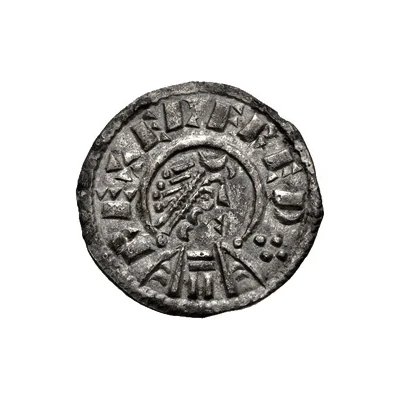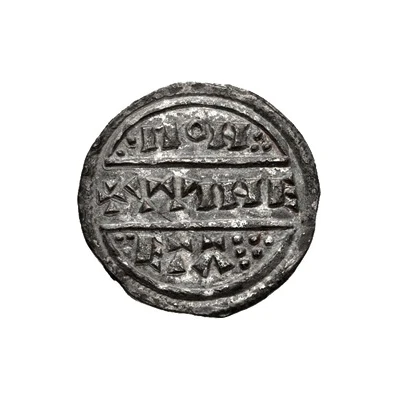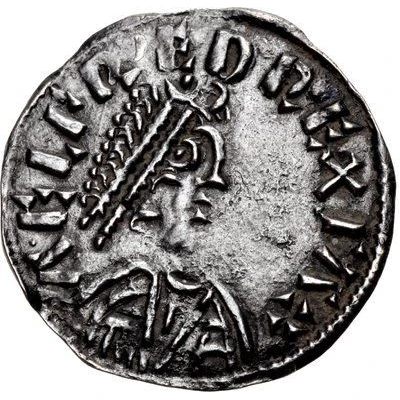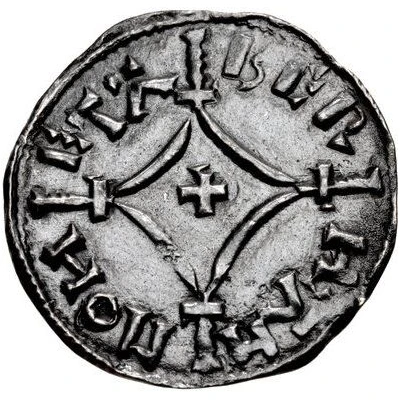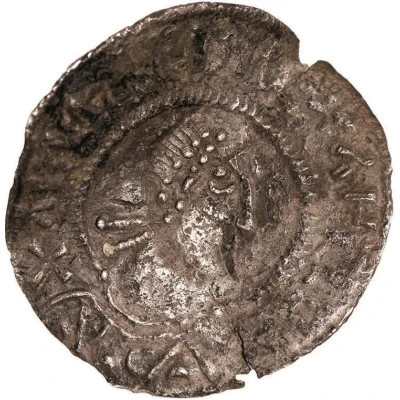
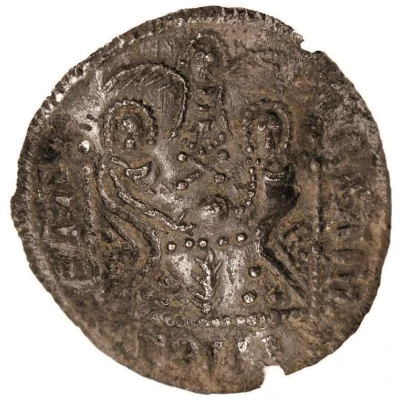

© Baldwins of St James Ltd
Penny - Alfred the Great Two emperors type
| Silver | 1.15 g | - |
| Location | Kingdom of Wessex (Kingdoms of British Isles and Frisia) |
|---|---|
| Moneyer | Beagstan |
| King | Alfred the Great (871-899) |
| Type | Standard circulation coin |
| Years | 875-876 |
| Value | 1 Penny (1⁄240) |
| Currency | Pound |
| Composition | Silver |
| Weight | 1.15 g |
| Shape | Round (irregular) |
| Technique | Hammered |
| Orientation | Variable alignment ↺ |
| Demonetized | Yes |
| Updated | 2024-10-09 |
| Numista | N#313336 |
|---|---|
| Rarity index | 100% |
Reverse
Two facing seated figures, holding orb between them, angel above with wings spread.
Script: Latin
Lettering: BEAGZ TANMON ETA
Translation: Beagstan, moneyer.
Comment
Anglo-Saxon Middle Period (c.780-973), Kings of Wessex (786-924), Alfred the Great (871-899), Two emperors type, uncertain mint.Brother and successor to Aethelred, Alfred had to contend with invading Danish armies for much of his reign. In 878, he and Guthrum the Dane divided the country, with Alfred holding all England south and west of Watling Street. Alfred asserted over-lordship of Mercia and London from c.880. (courtesy of Spink SCBC 56th ed. 2021)
Interesting fact
The Alfred the Great Penny, also known as the "Two Emperors" type, is a rare and highly sought-after coin among collectors. It was minted in 875-876 AD and features an image of Alfred the Great, King of Wessex, on one side, and a depiction of two emperors on the other. The coin was made of silver and weighs 1.15 grams. It's interesting to note that this coin was minted during a time of great change and upheaval in England, as the Viking invasions were taking place and the country was facing political instability. Despite these challenges, the coinage of Alfred the Great's reign is considered some of the most advanced and sophisticated of its time, with detailed designs and a high level of craftsmanship. Overall, the Alfred the Great Penny is a fascinating piece of history that offers a glimpse into the political, social, and economic conditions of 9th-century England.
